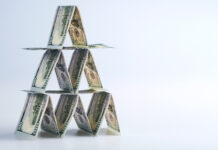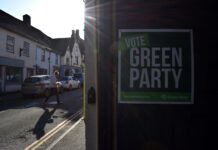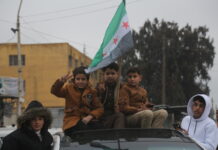
On Nakba Day – when Palestinians commemorate their forced expulsion from their homeland – Interpal’s Yasmeen Khan reports on the heroic struggle of Palestinian women across the Middle East.
“A nation is not conquered until the hearts of its women are on the ground. Then it is finished no matter how brave its warriors or how strong their weapons.”
(Tsistsistas, Cheyenne)
Yesterday marked 67 years since the “Israeli Declaration of Independence,” which was followed by the expulsion of more than 750,000 Palestinians from their homes.
It is for this reason that on 15th May, one day after Israel celebrates “Independence Day,” Palestinians mark the Nakba – their catastrophe.
Nakba Day serves to commemorate the great injustice and displacement faced by those in 1948, but also as reminder that the catastrophe is ongoing, with more than 5 million registered Palestinian refugees struggling to survive in refugee camps across the occupied Palestinian territories, Lebanon, Jordan and Syria.
Palestinian women
Subscribe to our newsletter and stay updated on the latest news and updates from around the Muslim world!
Within the daily struggles and resistance of Palestinian refugees are the stories and experiences of Palestinian women. Palestinian women face a “double burden,” as they not only suffer under occupation and exile but must also navigate gender discrimination and inequality (and often other forms of disadvantage).
For decades, concepts of Palestinian motherhood and womanhood have been used to both enable and resist dispossession, violence and occupation against Palestinians.

The role that women have played before, however, goes far beyond the conceptual. Practically, Palestinian women have taken part in direct and indirect resistance and protest whilst also dealing with everyday struggles.
Having had the privilege of spending time with Palestinian women in the occupied territories, as well as the refugee camps of Lebanon, it becomes apparent how refugee-hood and conflict affect them differently to men.
Palestinian women’s accounts are vital, because they go against the grain of history and tell us nuanced stories of everyday resilience among families coping with the burdens of violence and the loss of homes and livelihoods.
They illuminate the way in which women must hold together families and communities and how refugee-hood and occupation impacts the lives of women and girls, and how it affects what they can hope for their futures.
Lebanon
In the refugee camps of Lebanon, women are caught between harsh discrimination facing Palestinians and a cycle of poverty with very few avenues to address their needs. They are limited on what jobs they can take up due to Lebanese law, and educational attainment is decreasing as girls realise their families are unable to send them on to further education.
An eight year old girl from Beddawi camp told me that she wanted to be an astronaut, and whilst being optimistic and determined, she also stated “I know it will be difficult because I am a girl and a Palestinian refugee.”

From a young age Palestinian girls are aware of the limits they will face, and young women like Iqbal El Assad, the world’s youngest doctor and a Palestinian refugee from Lebanon or Soha Alqueshawi, a NASA engineer originally from Gaza are inspirational, not just to other women but to all of us.
It is important to not only recognise, but also celebrate the ways in which women resist and power their communities. The obstacles they have faced are pervasive, and what they achieve is a testament to their talent and strength of character.
Alongside those making a name for themselves, the grandmothers who pass on stories of their homeland help to maintain Palestinian culture in the face of ongoing oppression make an invaluable contribution, as do the women who work as breadwinners when their men have been incarcerated or killed.
Gaza
Despite being blind, Nesma is the sole breadwinner for her large family in the besieged Gaza Strip. Whilst disability adds yet another layer of disadvantage for Palestinians in Gaza, Nesma has shown tenacity and forbearance, educated herself to a Masters level in Islamic Studies and memorised the Holy Qur’an.
However, despite her determination to not allow her blindness to limit her, living in Gaza makes that all the more difficult.

“I used to memorise everything. I started with the details of my home, then all the roads surrounding it. Blind from birth, I’m only able to see the shadows of things, so memorising the space outside helps me to move freely and independently.
“In 2014, the war took away our neighbourhood, and that’s when everything I’d memorised disappeared. The routes I once perfected now lead me to nowhere, and I know that I will have to memorise it all again one day. I am going to wait a while before I do though, in case it disappears again.”
The Israeli bombardment threatened Nesma and her family physically, but also her sense of confidence and independence. She is now working to gain them back and it is this strength despite all her vulnerability that makes Nesma a truly inspiring woman.
Across Gaza, women must cope with the emotional and physical trauma of bombardments and the siege, whilst also coping with higher rates of domestic violence during conflict and psycho-social problems facing their family members.
“Backbone of Palestinian society”
Palestinian women have supported their families, at great physical and emotional cost to themselves and yet these everyday heroes are rarely mentioned when the world talks about Palestine.
Palestinian women are the backbone of Palestinian society, their charitable activities and community organising helped carry the First Intifada and their intra-community work in the refugee camps of Lebanon with local social welfare organisations is hugely important to supporting some of the most vulnerable people in their community.
The narratives we usually hear are those of Palestinian men or of women only as victims. However, it is important to honour the resilience of Palestinian women and girls and to acknowledge the many ways in which they might struggle and resist the forces shaping their lives, whilst also contributing to and strengthening their communities and families.
Interpal will be holding its annual Nakba Narratives event on Saturday 30th May to honour generations of Palestinian resilience.
For tickets visit https://bit.ly/1IvDKF0 or for more information call Interpal on 020 8961 9993.





















